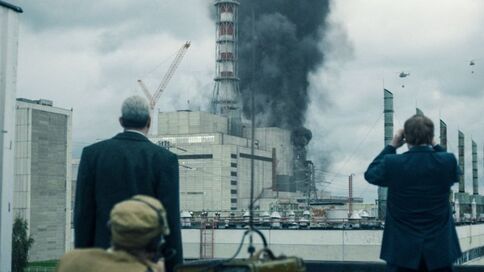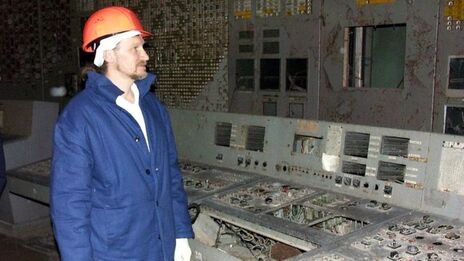|
Chernobyl 2019 docu-drama, horror HBO mini-series 5 one-hour episodes 'Chernobyl' is scarier than most horror movies in that it is a dramatization of the actual, real-life horror experienced by thousands of people on that fateful April 26, 1986 morning and the years that followed. This excellent series puts a human face on a deadly man-made disaster. The Chernobyl catastrophe has haunted Russia, Europe, and the rest of mankind more than three decades later. And that creeping dread permeates the whole show. It's difficult to watch knowing that so many innocent people are doomed. But it certainly makes it a must-watch, and is truly an exceptional, important piece of dramatized non-fiction. Covered up by a secretive Soviet Union at the time, the true number of deaths and illnesses caused by the [Chernobyl] nuclear accident are only now becoming clear. A group who bore the brunt of the radiation exposures in the hours and days after the explosion were those living in the nearby town of Pripyat and the surrounding area. It took a day and a half before the evacuation began and led to nearly 50,000 people being evacuated. Later an additional 42,000 people were evacuated from another 80 settlements in a 30km evacuation zone around the power plant. For additional details, see the BBC report here. Putting a figure on exactly how many deaths around the world may result from the Chernobyl disaster is almost impossible. But despite the grim picture much of the research paints, there are some stories of hope too. Three engineers who volunteered to drain millions of gallons of water from tanks beneath the burning reactor in the days immediately after the explosion waded through highly radioactive water and debris to reach the release valves. Their heroics are one of the most dramatic moments in this disaster movie. Astonishingly, the BBC reporters found that two of the three men are still alive (in June 2019) despite having minimal protection from the radiation during their mission. The third engineer, Borys Baranov, survived until 2005. Is the TV series historically accurate? Why not interview a Chernobyl survivor, who also happens to be a nuclear engineer? That is exactly what the BBC did. You can read the June 12, 2019 interview with Russian engineer, Oleksiy Breus, here. I have summarized and recapped the article below: Chernobyl survivor assess fact and fiction in TV series - Hours after the world's worst nuclear accident, nuclear engineer Oleksiy Breus entered the control room of the No. 4 reactor at the Chernobyl nuclear power plant in Ukraine. A member of staff at the plant from 1982, he became an eye-witness to the immediate aftermath on the morning of 26 April 1986. The story of the reactor's catastrophic explosion, as told in an HBO miniseries, has received the highest ever score for a TV show on the film website IMDB. Russians and Ukrainians have watched it via the internet, and it has had a favorable rating on Russian film site Kinopoisk. Mr. Breus worked with many of the individuals portrayed in the HBO Chernobyl series, and has provided a few comments about the accuracy of the presentation.
For those readers interested in digging into a forensic analysis of the Chernobyl accident, I leave you with this link to The Chernobyl Reactor: Design Features and Reasons for Accident by Mikhail V. MALKO. I performed a technical literature search on the subject, and determined the Malko paper to be the best available in the English language. In any case, avoid the early studies submitted while the Soviet Union controlled the information flow. The Party Line was “Operator Error main cause of accident” and they stubbornly stuck to that false conclusion for years. Dr. Malko was free to make up his mind and came to some sensible and astonishing deductions about the shortcomings of the Soviet RBMK reactor design.
0 Comments
Leave a Reply. |
AuthorWritten by Ben Clark. Copyright 2016-2023. All rights reserved. Archives
August 2023
Categories |


 RSS Feed
RSS Feed
